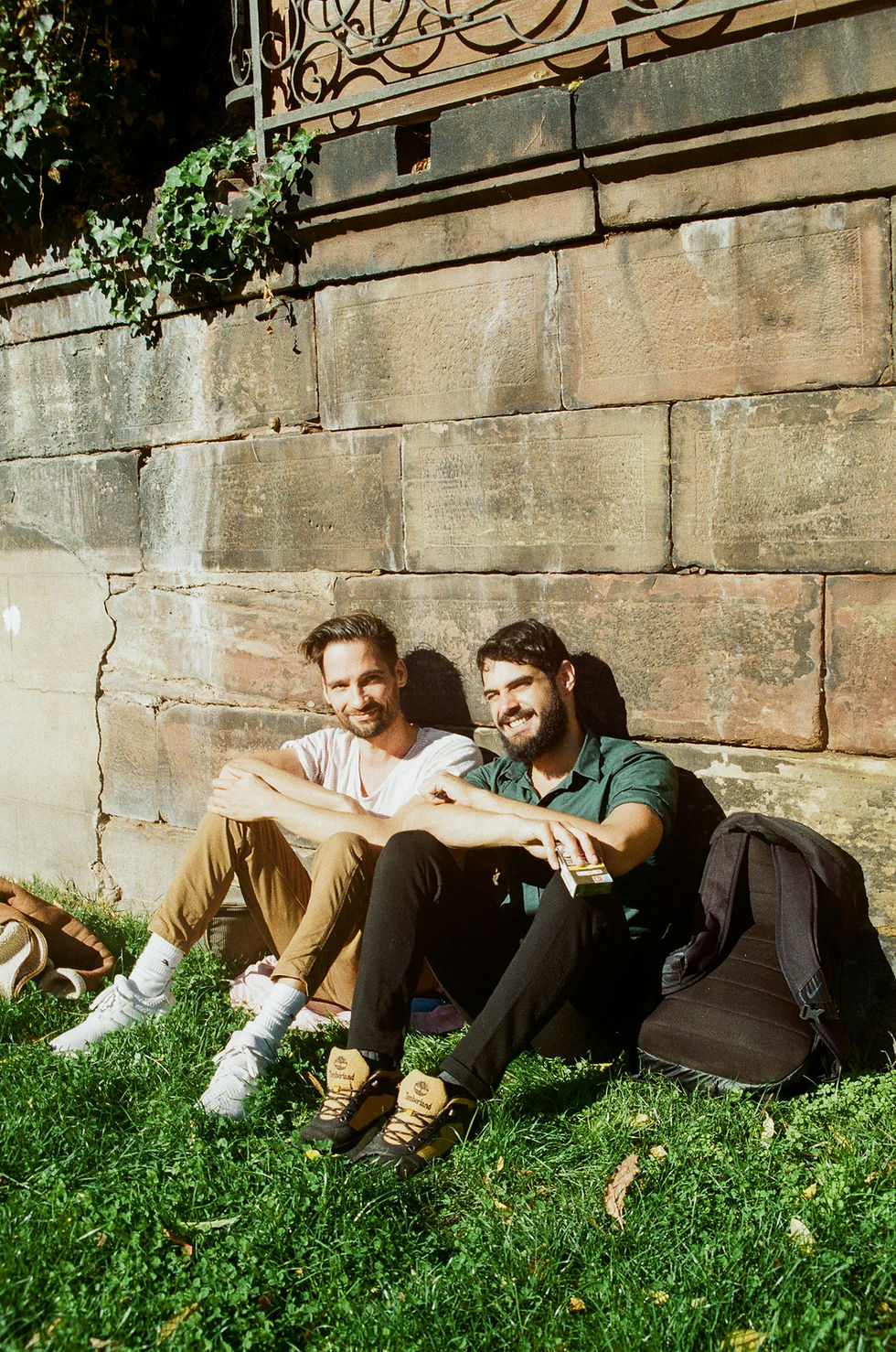The Question Gay Men Shouldn’t Have to Answer
- Chris Tompkins

- May 6, 2025
- 4 min read
Updated: Sep 10, 2025
How being asked “How did you know?” can lead gay men to self-abandonment.

KEY POINTS
Gay men are often asked to explain their identity, while straight people rarely are.
These questions can lead to self-abandonment, shame, and delayed self-acceptance.
Healing begins with trusting your own experience, without needing to justify it.
What if straight people were asked how they knew they were straight? Sounds absurd, right? And yet, for many gay men, one of the most common responses to coming out isn’t immediate affirmation—it’s a question: How do you know? Or worse, How did you know you were gay when you were a kid?
These questions may be framed as curiosity, but they carry a hidden message: that same-sex attraction must be explained, justified, or proven to be valid.
They reflect the unspoken norm of heteronormativity—the assumption that heterosexuality is default and everything else requires justification.
It’s about adult constructs of sexuality and how adults project those constructs onto their conceptualization of what it means to be gay, which centers around behaviors rather than feelings or early identity development.
The internalized message: “Being gay is all about sex, and you’re too young to know.”
Beneath the question “How do you know?” hides the assumption that same-sex attraction is purely about sexual behavior. It doesn’t take into consideration anything about an inner knowing, intuition, or just an overall sense of identity.
When we're six, we may not know what being gay necessarily means, but we have an inner knowing—and it’s a child’s inner knowing that needs to be cultivated, not shut down or questioned. Being asked to explain or justify our identity suggests that our feelings are unreliable unless we can articulate them in ways others understand.
This reduces the rich, evolving nature of self-discovery into a test we must pass rather than an experience we simply get to have.
What the question "How do you know?" leads to
Self-abandonment to make others comfortable
Remaining in the closet longer, out of fear of rejection or misunderstanding
Feeling “different” and isolated
What it hides
The ongoing nature of self-discovery and the fact that your identity doesn't need to be explained or justified to anyone.
When you're asked to explain aspects of your identity that others are privileged to never question, the question isn’t curiosity—it’s a quiet wound shaped by heteronormativity.
While promoting my book Raising LGBTQ Allies, in which I write about knowing I was gay at six, I was often asked, “How did you know you were gay when you were six?” I sometimes responded by asking, “How did you know you were heterosexual?” It was a question most people had never even considered—highlighting the double standard: straight people aren’t asked to explain their sense of self, yet gay men are often asked to retrace and articulate their earliest feelings, as if a mere recollection of attraction qualifies or invalidates their identity.
Your feelings didn’t start the moment you found the words to describe them. Self-discovery is a process, and the internalized pressure to explain ourselves doesn’t just affect us—it’s reinforced by the questions others ask.
If you’ve ever asked “How did you know?”
If you’ve ever asked someone how they knew they were gay—especially as a child—it might help to consider what’s beneath the question. Often, it reflects an assumption that being gay is primarily about sex. And if that’s the case, then how could a six-year-old possibly know?
But being gay, like being straight, isn’t about a sex act. It’s about identity, connection, and the way we experience ourselves in the world. When we reduce being gay to sex, we overlook the full humanity of the person in front of us—and we miss the point entirely.
Instead of asking for a timeline or an explanation, try something else. Be curious about their story, not their proof. Ask what it was like for them to grow up with those feelings. Or simply say, “Thank you for sharing that with me.” Trust that they know who they are. Your support doesn’t require understanding every detail—it just requires respect.
A practice to reconnect with your knowing
As you reflect on how you might have felt pressured to explain yourself, take a moment to reconnect with your inner sense of self. Find a quiet space, and recall that earliest knowing—you knew who you were long before anyone questioned you. Notice how that certainty feels in your body, and take a deep breath into the memory.
Remember, you don’t owe anyone an explanation for how you arrived at the understanding of who you are. Your identity is meant to be lived, not defined. Honor your inner knowing, and reclaim it from the questions that—whether conscious or unconscious—ever imposed a limited view of who you are.
Featured on: Psychology Today
Chris Tompkins is a gay male therapist in West Hollywood (Los Angeles) who specializes in working with adult gay men, individuals and couples. He supports clients navigating identity, relationships, religious trauma, addiction, and self-esteem. To learn more, explore therapeutic services or schedule a free consultation.




Comments